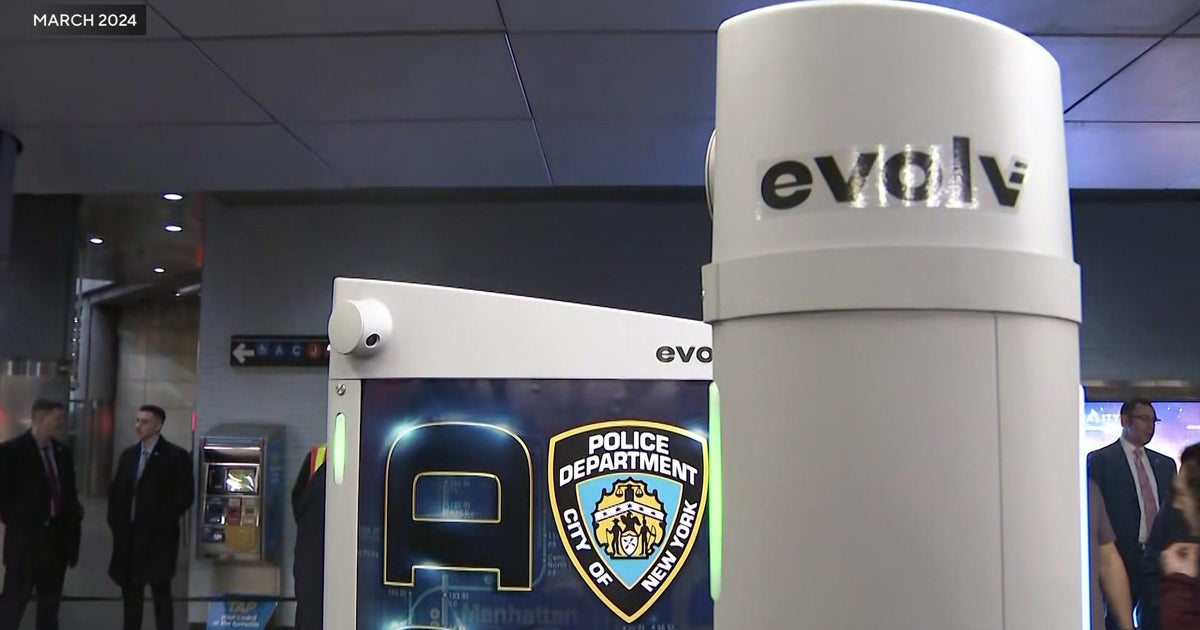NYC congestion pricing lawsuits go before federal judge. Here's why groups are suing to stop the tolls.
NEW YORK -- As New York City's June 30 start date for congestion pricing inches closer, a federal judge is considering if lawsuits seeking to stop the new tolls should proceed after hearing hours of arguments Friday.
Oral arguments from three different plaintiffs started at 9 a.m. One suit is from a group called New Yorkers Against Congestion Pricing Tax, another is from a Battery Park City resident and a third is from the United Federation of Teachers.
The plaintiffs argue congestion pricing will worsen pollution and traffic in the outer boroughs and neighborhoods like the Lower East Side as drivers gravitate to toll-free roads like FDR Drive.
"We have been clear that this current MTA plan moves pollution and congestion out of Manhattan and sends it into the other boroughs and neighborhoods already dealing with environmental hazards. The MTA then asks these same communities to carry all the cost of making life better in Manhattan," said UFT President Michael Mulgrew, who filed a lawsuit with the Staten Island Borough President at the beginning of the year. "It is not fair, and we are asking the courts to tell the MTA to come up with a better plan."
They claim federal transportation officials allowed the plan to move forward without a comprehensive environmental review.
The MTA disagrees.
"Was a 4,000-page, 4-year study sufficient? We think it is. The federal government gave us an A+, that's why we're confident going into this," said MTA Chair Janno Lieber.
"People who live here don't want to pay to come home, and quite frankly we're not convinced that it does what it says it does. We think it's just a money grab from the MTA," said Kathryn Freed, with New Yorkers Against Congestion Pricing Tax.
Plaintiff Elizabeth Chan, a Battery Park City resident, says increased traffic on the West Side Highway and FDR could slow down first responders.
"My daughter is a 3-year-old with special needs and we rely on ambulances every day, and for the MTA to say that ambulance response times will improve in the district is just a lie," Chan said.
The judge, at times, expressed skepticism as lawyers argued Chan's case and went over EPA documents, even asking, "Doesn't this show that everybody was doing exactly what they were supposed to be doing?"
The MTA faces several lawsuits before congestion pricing can be rolled out next month.
In May, the Hempstead Town Supervisor filed a new suit on Long Island, saying the plan amounts to an illegal tax. New Jersey officials have also sued, arguing at least 13 counties will be adversely affected by changing traffic patterns.
A judge is expected to make a decision in the New Jersey case before the tolls take effect.
See the NYC congestion pricing map
The "Congestion Relief Zone" covers the area south of 60th Street in Manhattan.
It encompasses four East River bridges -- the Brooklyn Bridge, Manhattan Bridge, Queensboro Bridge and Williamsburg Bridge -- and four tunnels -- the Holland Tunnel, Hugh Carey Tunnel, Lincoln Tunnel and Queens-Midtown Tunnel.
It does not include the FDR Drive or West Side Highway, but drivers will be charged if they exit into the relief zone.
When does NYC congestion pricing start?
Congestion pricing is slated to start as early as next month. The MTA plans to turn on the tolls at 12:00 a.m. on Sunday, June 30.
Peak hours will be from 5 a.m. to 9 p.m. on weekdays, and from 9 a.m. to 9 p.m. on the weekends.
For the first 60 days, tolls will be collected, but drivers will not face additional fees or fines, per state law.
How does NYC congestion pricing work?
Most drivers will be charged $15 to enter the Congestion Relief Zone during peak hours.
The rest of the rates include:
- Passenger vehicles: $15 peak, $3.75 off peak
- Motorcycles: $7.50 peak, $1.75 off peak
- Trucks and buses: $24-$36 peak, $6-$9 off peak
- Green and yellow taxis and black cars: $1.25 per trip
- App-based for-hire vehicles: $2.50 per trip
More than 100 cameras have been installed to scan drivers' E-ZPass and license plates as they enter the zone.
There will be a $5 credit for drivers who use E-ZPass and take the tunnels during peak hours, but the new tolls will cost about 50% more for drivers who do not have E-ZPass.
See the full list of congestion pricing exemptions and more details here.





